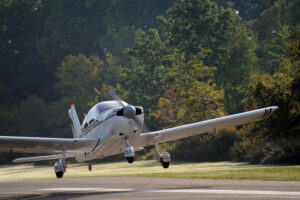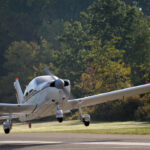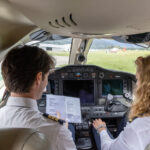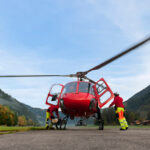Aviation weather decisions may mean life or death, but they shouldn’t mean your job
To go or not to go, that’s the question. I was lucky with my EMS position because aviation weather was never an issue for us. If we didn’t like it, we didn’t go. But not all companies have the same policy. However, my corporate boss isn’t afraid of anything, so it’s a little more challenging to cancel or delay a flight. He doesn’t know what he doesn’t know, and I’m not going to let him bully me.
EMS companies are different. Our patients and missions are more fragile than a business or vacation flight. We erred heavily on the side of caution, which may have been because of a tragic accident that occurred well before my time. At any rate, our management never questioned our weather decisions, which was how we liked it.
The company where I worked was getting an SMS program in place when I left, and I still remember the risk management matrix that all the pilots had to fill out at the beginning of their shifts. It was incredibly detailed, asking about their mental condition, their sleep the night (or day) before, their physical condition, the condition of the aircraft/helicopter, and then, of course, there was a whole section on the current and forecast weather.
The company even had minimums that were more restrictive than the FAA minimums. However, a pilot could still turn down any trip for any reason, especially weather-related. That’s the way it should be. That’s the way it needs to be.
There are companies out there that may not agree, though. A few years ago, an air ambulance pilot turned down two separate flights in the same month and was let go because of it. They made a PIC decision to refuse the flight due to a concern about limited visibility. That’s all I need to hear. If there’s a concern about the weather, we don’t go. Period.
Even if another company pilot had taken the same flight in the same conditions, it doesn’t mean the first pilot made the wrong decision. Remember the risk management matrix? Maybe fatigued played a factor or they didn’t feel well. Perhaps the helicopter had an MEL item that lead to being uncomfortable. Who knows. Who cares.
Aviation weather is nothing to be messed with, especially when talking about EMS flights that are off-airport and low-altitude missions.
RELATED READING
RELATED CTS TRAINING










